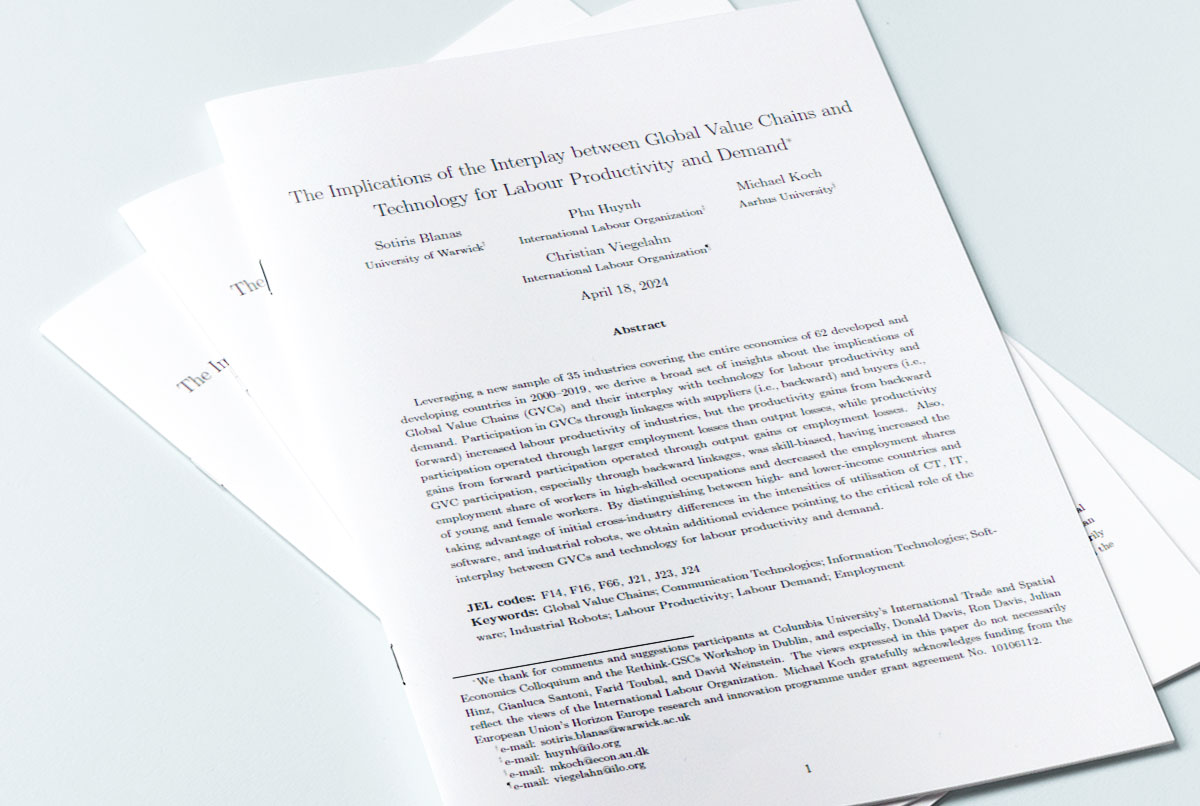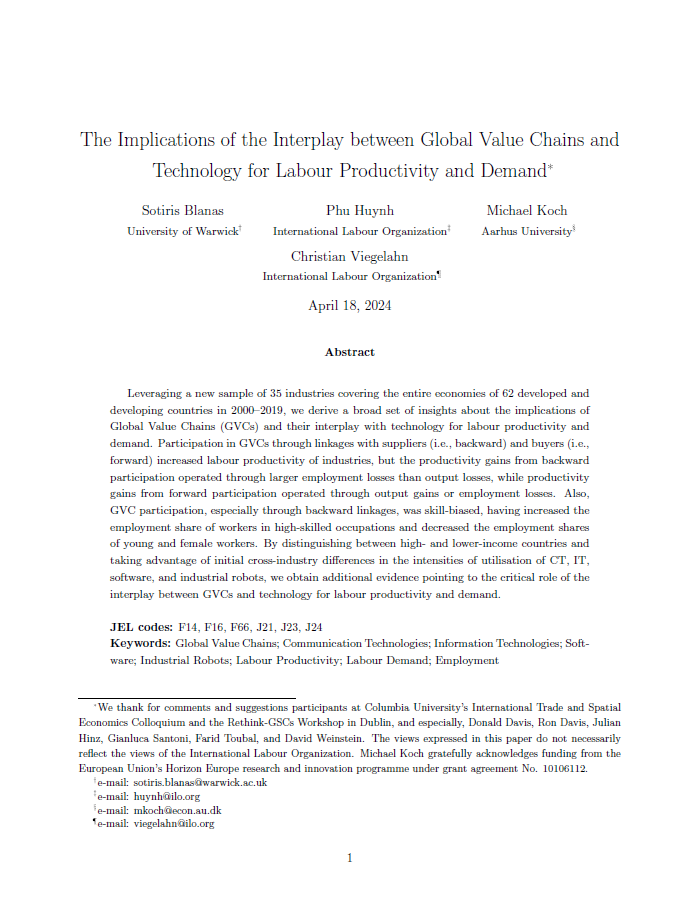AUTHORS
Sotiris Blanas, Phu Huynh, Michael Koch, Christian Viegelahn
Abstract
Leveraging a new sample of 35 industries covering the entire economies of 62 developed and developing countries in 2000–2019, we derive a broad set of insights about the implications of Global Value Chains (GVCs) and their interplay with technology for labour productivity and demand. Participation in GVCs through linkages with suppliers (i.e., backward) and buyers (i.e., forward) increased labour productivity of industries, but the productivity gains from backward participation operated through larger employment losses than output losses, while productivity gains from forward participation operated through output gains or employment losses. Also, GVC participation, especially through backward linkages, was skill-biased, having increased the employment share of workers in high-skilled occupations and decreased the employment shares of young and female workers. By distinguishing between high- and lower-income countries and taking advantage of initial cross-industry differences in the intensities of utilisation of CT, IT, software, and industrial robots, we obtain additional evidence pointing to the critical role of the interplay between GVCs and technology for labour productivity and demand.
Publication Date
April 2024
Working papers present the results of ongoing research and make current research results freely available. Due to their preliminary nature, working papers are subject to ongoing peer review. In this context, updated paper versions may be made available at irregular intervals. It may also be useful to contact the author(s) directly about the results before referring to or citing a paper.





